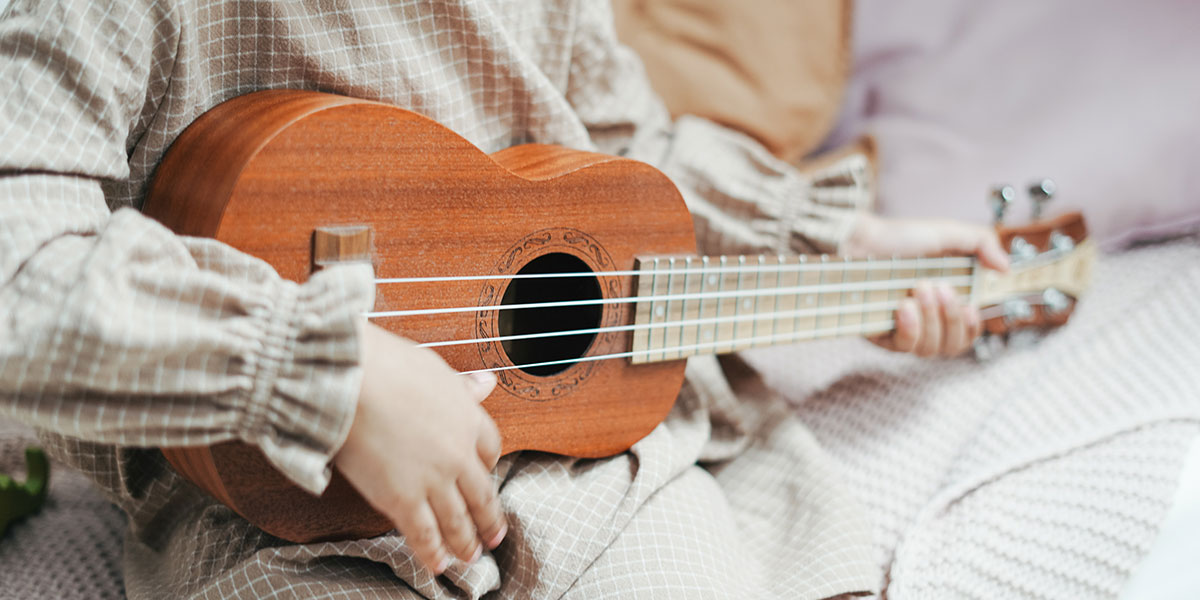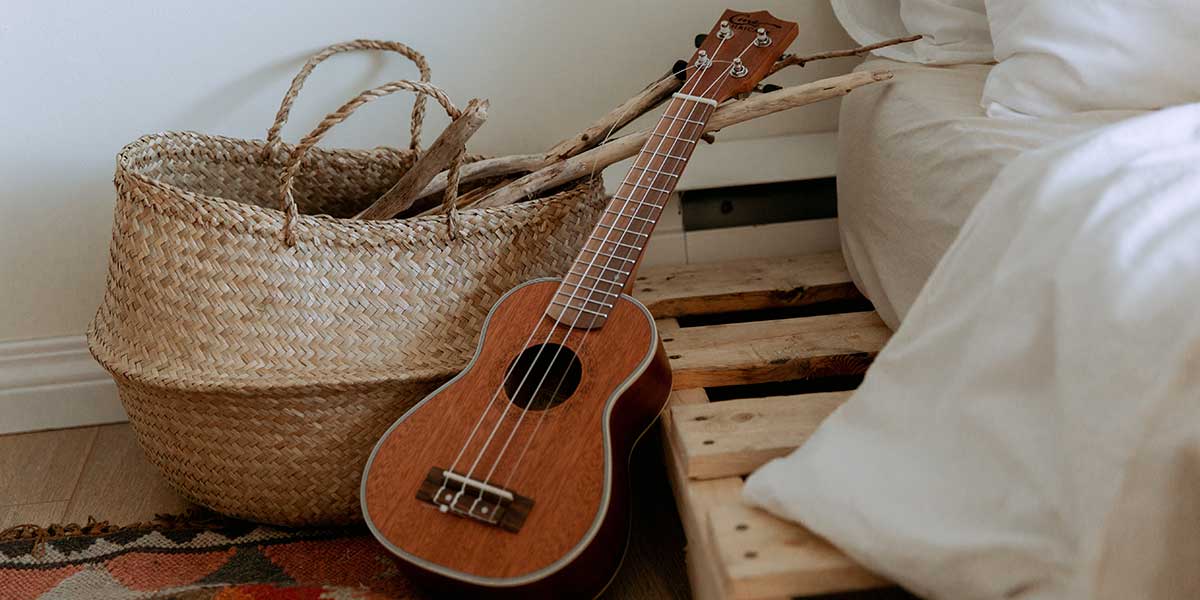Harmonizing History: The Ukulele's Resonant Legacy in Hawaiian Culture
As you enter our Big Island Bed and Breakfast, you will be greeted with the soft melodies of Hawaiian Music. Much of it featuring the ukulele, a four-stringed instrument synonymous with gentle strumming, beachside melodies, and a warm Hawaiian breeze, has long been interwoven with the cultural fabric of the Hawaiian Islands. Beyond its sweet sound and iconic silhouette, the ukulele holds a deep-seated position in Hawaiian history and identity. But where did this unique instrument originate, and how did it become the heartbeat of Hawaiian culture?

Origins of the Ukulele: A Blend of Cultures
The ukulele’s origins can be traced back to the 1870s when Portuguese immigrants introduced small guitar-like instruments, notably the machete and the braguinha, to the Hawaiian Islands. These instruments quickly captured the interest of Hawaiians and combined with their cultural influences and innovations, the ukulele was born.
However, while its roots lie in Portuguese craftsmanship, the name ‘ukulele’ is uniquely Hawaiian. Translated, it means “jumping flea,” possibly alluding to the nimble fingers of its players dancing over the frets.
The Ukulele and Hawaiian Royalty
The island’s royalty significantly influenced the ukulele’s prominence in Hawaiian culture. King David Kalākaua, Queen Lili’uokalani, and their siblings were instrumental in popularizing the ukulele. They played and composed songs for the instrument and championed it as a symbol of Hawaiian pride. Under their patronage, ukulele-making became a respected craft, and the instrument’s melodies became integral to royal festivities and gatherings.
The Ukulele in Modern Hawaiian Music
Over the decades, the ukulele seamlessly blended with traditional Hawaiian chants and hula, birthing a distinctive sound that resonated within and beyond the islands. This harmonization between the instrument and Hawaiian culture became even more prominent in the 20th century
Artists like Israel Kamakawiwo’ole elevated the ukulele’s status in contemporary music. His rendition of “Over the Rainbow” beautifully encapsulates the instrument’s ability to evoke deep emotions and transport listeners to the serene landscapes of Hawaii. His passionate vocals and the ukulele’s gentle strumming showcased the depth and breadth of what this humble instrument could achieve.
The Ukulele’s Resonance in Social Movements
The ukulele wasn’t merely confined to the realm of music. Its influence resonated deeply in Hawaiian social and political spheres. During the 20th century, when the Hawaiian Renaissance took root – a movement aiming to reclaim and celebrate Hawaiian culture, language, and traditions – the ukulele played a pivotal role. It became a symbol of resistance, a voice for the marginalized, and an instrument that bound communities together. In many gatherings and protests, the strumming of the ukulele provided a musical backdrop, reinforcing the spirit of unity and determination.

Hawaii's Gift to the World
While the ukulele is undeniably Hawaiian at heart, its music transcends borders. Over time, it found its way to the continental US, particularly during the Panama-Pacific International Exposition in 1915. The mainland’s infatuation with the ukulele began as Hawaiian musicians played to intrigued audiences.
Soon, this Hawaiian import was everywhere, from jazz clubs in New Orleans to Broadway stages in New York. While it underwent various adaptations and faced competition from other instruments, its essence remained untouched. The ukulele became a bridge, linking diverse cultures and introducing Hawaiian melodies.
The Eternal Strumming of Hawaii's Heartbeat
The ukulele, more than just a musical instrument, is a chronicle of Hawaii’s history, struggles, and triumphs. It stands as a testament to the islands’ ability to harmonize external influences with indigenous traditions. The ukulele’s journey from the hands of Portuguese immigrants to becoming a symbol of Hawaiian identity reflects the islands’ resilient spirit and the universality of music.
Today, as a new generation of artists and enthusiasts discover and reinvent the ukulele, its legacy remains robust. It continues to be an instrument that, with just a few chords, captures the essence of a sunset over Waikiki, the whisper of palm trees, and the enduring spirit of Hawaiian culture.
In every gentle strum and melodious tune, the ukulele resonates with the rich tapestry of Hawaiian history, ensuring that its legacy will harmonize with the future for generations to come. Stay at our Volcano Bed and Breakfast and check out Lava Rock Café in Volcano. They often have live music on a Sunday evening. There are also many places in Hilo to listen to live music.
